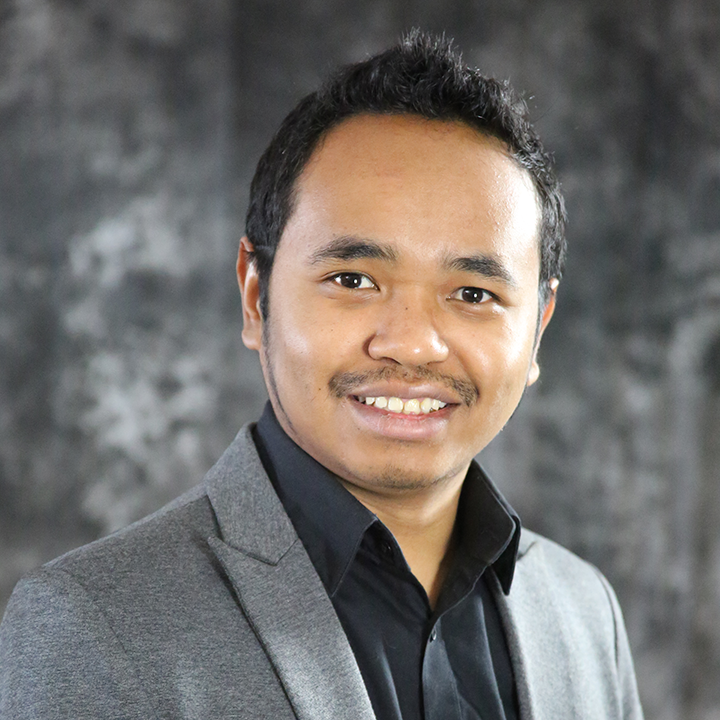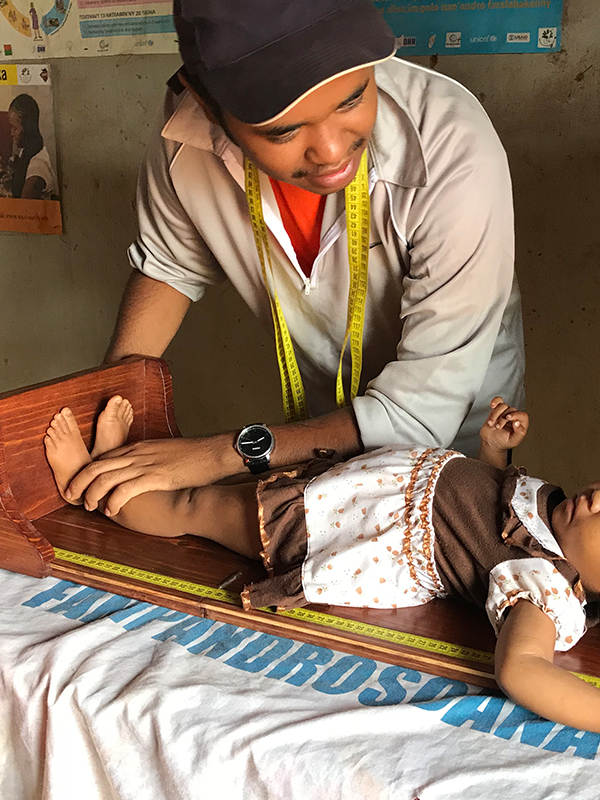
Nutritional sciences grad seeks to feed the world
Wednesday, January 20, 2021
Studying agronomy in Madagascar lit a fire in Dr. Hasina Rakotomanana’s heart for rural food insecurity, as he realized the farmers he worked with were unable to feed their own families.
Determined to make a difference, Rakotomanana left Madagascar on a Fulbright scholarship to pursue a doctorate in nutritional sciences at Oklahoma State University. Now, his doctoral research has uncovered key characteristics of Malagasy smallholder farmers’ food insecurity, and he has accepted a junior consultant position at the United Nations’ World Food Program in Rome, Italy.
“As I studied nutrition policy at OSU, I found research opportunities that were concrete and applicable for changing peoples’ lives,” Rakotomanana said. “Now, I can use what I have learned to guide nutrition policy.”
After graduating from OSU in spring 2020, Rakotomanana accepted a position with the World Food Program. An impressive accomplishment for a recent grad, Rakotomanana traces his interest in nutrition to living with Malagasy farmers while studying agronomy at the School of Agronomy and Environmental Sciences in Madagascar. Rotations and field trips sent him throughout the country, but during one internship, he saw first-hand the struggle of the farmers to simply feed their families.
“I thought, we must do something about this,” Rakotomanana said. “It is wrong our cities have access to markets and foods while our farmers struggle. I sought to study nutritional sciences, and when I couldn’t find such a program in Madagascar, I applied for a Fulbright to come to the U.S.”
At OSU, Rakotomanana developed an interest in maternal and child nutrition. Classes ranging from global nutrition and food security to maternal and child nutrition prepared him to understand the specific needs of children under the age of two, an integral time for a child’s overall growth.
He then traveled back to Madagascar to conduct field interviews with rural farmers for his dissertation research. Rakotomanana’s travels were largely sponsored by the Marilynn Thoma Chair in Human Sciences endowment, designed to support those faculty who have brought distinction to the College and the university through their enterprising research, commitment to student learning and leadership in their field of endeavor.
"I went to a region where more than half of the children under the age of two were too short for their age due to chronic malnutrition,” Rakotomanana said. “They have very productive agricultural lands, so I wanted to investigate what could be going wrong.”
After interviewing nearly four hundred rural Malagasy households, Rakotomanana found each owned less than one acre of land … too small to feed a family. Mothers were aware of their children’s nutritional needs after years of sensitization and outreach, but they still lacked the resources to meet those needs.
Now, Rakotomanana’s research could lay a foundation for policy decisions.
“When I first started in 2016, I could literally count on my hands the number of studies from Madagascar about food insecurity and nutrition,” Rakotomanana said. “We are trying to get more awareness for Madagascar, especially from international aid organizations and the Malagasy government, because that shapes nutrition policy.”
Dr. Barbara Stoecker, nutritional sciences Regents Professor and Marilynn Thoma Chair, worked closely with Rakotomanana as his graduate advisor and shares in his vision of improving global food security.
“Hasina has an excellent understanding of research methodology,” Stoecker said. “I am convinced he is a person who can provide global leadership in the decades to come.”

Rakotomanana’s passion for supporting his home country has now grown to a global impact. In his new role at the World Food Program, he supports the nutrition operations of the organization to assist countries’ response to crises in ensuring that the nutritional needs of the vulnerable populations are met.
“Being part of the organization that received the 2020 Nobel Prize for its efforts in reaching the most vulnerable and reducing their suffering is an extremely rewarding and fulfilling experience,” Rakotomanana said.
As he looks ahead toward his career, Rakotomanana hopes more students follow his path at OSU in international nutrition policy.
“If people are more aware of some of the unique challenges low-income countries face, it could create a big impact,” Rakotomanana said. “I want my work to inspire others to act.”
Students interested in international nutrition have many opportunities at OSU. Many doctoral students conduct research internationally, with ongoing research and partnerships in locations such as Ethiopia and Uganda. Additionally, Dr. Barbara Stoecker teaches a global nutrition and food security graduate course.
“The field of global nutrition is a promising field right now, and we need more international nutrition policy experts,” Rakotomanana said. “When people hear ‘nutrition,’ they think eating your veggies and counting calories, but it is so much more than that – solving global challenges and making a difference in peoples’ lives.”
MEDIA CONTACT: Brittany Bowman | 405-744-9347 | brittany.bowman@okstate.edu
